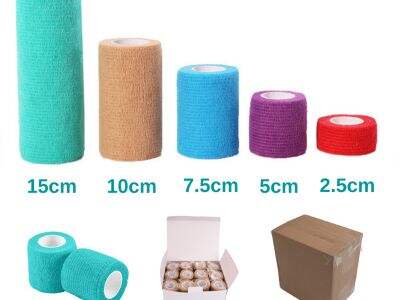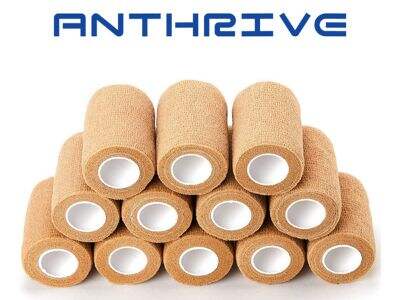While knowledge of diverse kind of bandages can be tricky, it's necessary to determine which one suits an injury best. Different forms of medical bandages and their specific roles The five main varieties are gauze, adhesive, elastic, self-adherent, and cohesive bandages.
Gauze bandages are constructed from woven cotton. Excellent for covering wounds and soaking up blood and other fluids. Fusion has an easy to use adhesive bandages. They adhere directly to the skin without tape. Elastic bandages are stretchable and assist in providing support to sprains and strains. Self-adherent bandages stick to themselves, but not your skin. They also work well to hold dressings in their places. Cohesive bandages are like self-adherent bandages, but they can provide more compression.

Medical Bandages: Know its Benefits They help shield wounds from dirt and germs, assist with healing by keeping the area clean and moist, and provide support that reduces swelling and pain. Bandages also control bleeding and prevent further injury. With the appropriate type of bandage, you can improve the healing process and speed up healing for someone.
Bandages for Right Bandages for Different injuries For cuts and scrapes, gauze bandages are ideal. Adhesive bandages are good for small wounds and blisters. Elastic bandages are useful on sprains and strains. Self-adherent bandages or cohesive bandages are excellent for holding dressings in position and will help give support for more severe injuries.
There are always new bandages for better healingYou are also learning new things. Certain bandages contain special agents that also prevent infection, and some can help with swelling and pain. Then, there are bandages that use new materials that offer superior support and compression.
The right methods of Using and Taking Care of Bandages can make them more effective. To avoid infection, always clean and dry it before putting on a band-aid. The bandage should be tight but not so tight that blood flow is cut off. Keep the wound clean and dry by changing the bandage regularly. Replace the bandage immediately if it gets wet, dirty or begins to peel away. Be sure to follow any special instructions given by your doctor.

So without any further ado, here is what you need to know about different kinds of medical bandages and why they might be right for various injuries. By selecting the proper type of bandage and following advice on how to use (and care for) them, you can promote healing and speed recovery. You can speed up the healing process and return to what you love doing faster with the aid of new bandages. If you have a doctor in your family, you always get the right medical bandage that's why trust Anthrive and let take a step closer to a healthier future.

 EN
EN
 AR
AR
 BG
BG
 HR
HR
 CS
CS
 DA
DA
 NL
NL
 FI
FI
 FR
FR
 DE
DE
 EL
EL
 IT
IT
 JA
JA
 KO
KO
 NO
NO
 PL
PL
 PT
PT
 RO
RO
 RU
RU
 ES
ES
 SV
SV
 TL
TL
 ID
ID
 LV
LV
 LT
LT
 SR
SR
 SK
SK
 SL
SL
 UK
UK
 HU
HU
 TH
TH
 TR
TR
 MS
MS
 GA
GA
 BE
BE
 IS
IS
 HY
HY
 MN
MN
 MY
MY
 UZ
UZ
